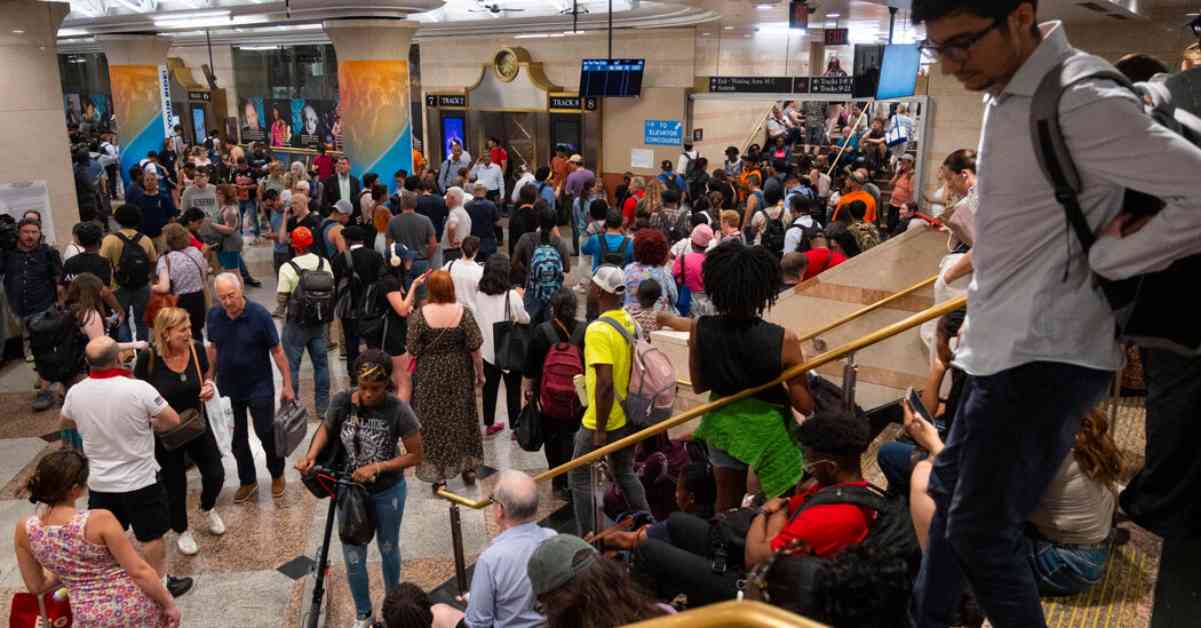Amtrak passengers have been facing unprecedented delays due to extreme weather conditions wreaking havoc on the already dated U.S. rail infrastructure. The effects of climate change are becoming more evident as intense heat waves, heavy downpours, and strong winds become more frequent, putting a strain on the railway system.
On June 20, as a sweltering heat wave gripped the nation, Amtrak issued a warning about potential delays of up to an hour for trains connecting major cities in the Northeast due to high temperatures. The situation took a turn for the worse later that day when a power failure caused by the scorching heat near the New Jersey side of the Hudson River tunnels led to a complete shutdown of a 150-mile stretch of the busiest rail corridor in the country for over three hours. The repercussions of this incident lingered into the next day, causing residual delays for passengers.
With the Earth heating up at an alarming rate, the outdated rail infrastructure is struggling to cope with the impact of extreme weather events that were not a common occurrence when the system was initially built. A recent analysis of Amtrak data by The New York Times revealed that passengers have been experiencing an unprecedented number of delays due to various weather-related issues such as heat waves, storms, floods, high winds, low temperatures, tornadoes, lightning, and wildfires.
In the fiscal year 2023, which spanned from October 2022 to September 2023, extreme weather events resulted in over 4,010 hours of delays for Amtrak trains. This record number of weather-related delays in over 20 years highlights the challenges that the rail service is facing in maintaining its schedule amidst the changing climate conditions.
Passengers have been left stranded at stations, like Penn Station in New York, as trains have been forced to come to a standstill due to weather-related incidents along the Northeast Corridor. The disruptions caused by these events have not only inconvenienced travelers but have also raised concerns about the reliability and resilience of the country’s rail network in the face of climate change.
As climate change continues to impact the frequency and intensity of extreme weather events, it is imperative for the U.S. rail infrastructure to undergo significant upgrades and modernization to ensure the safety and efficiency of train travel for passengers. The challenges posed by weather-related delays serve as a stark reminder of the urgent need to address the vulnerabilities of the rail system in the face of a changing climate.





















